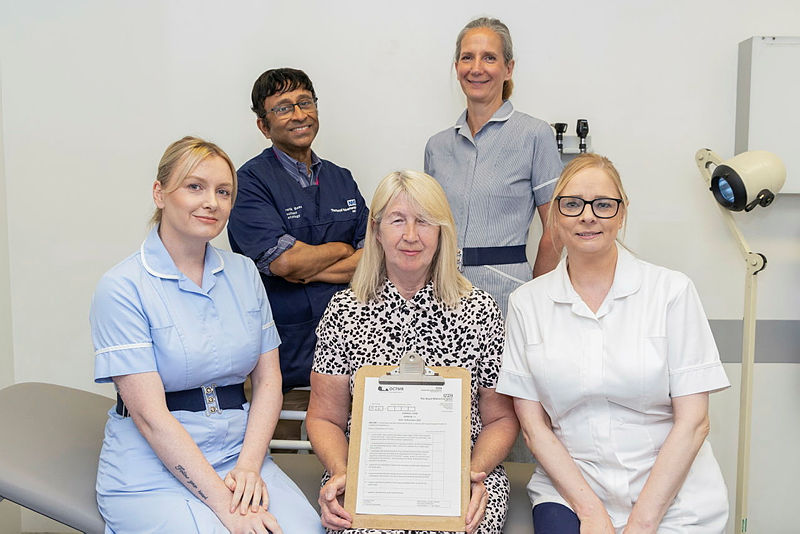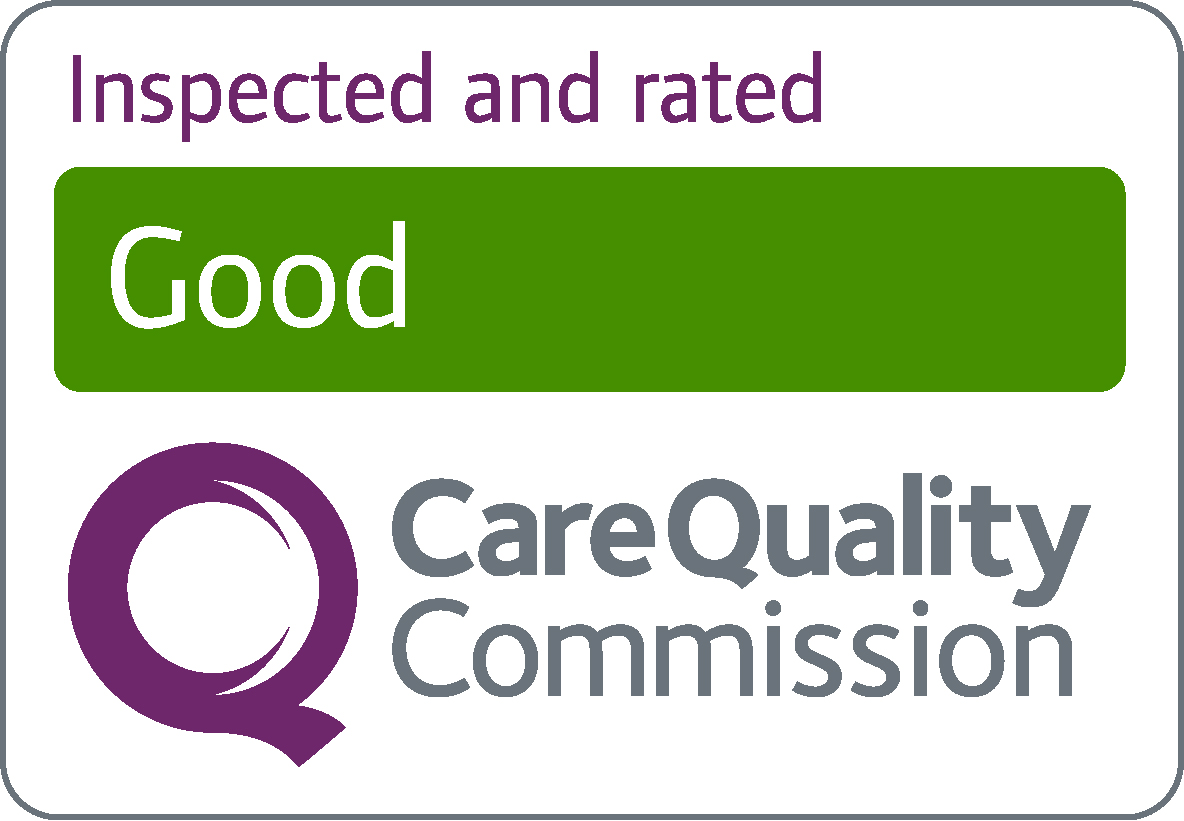People invited to join SECURE trial
Date of release: 20 May 2024
Researchers are hoping to attract 20 more people to take part in a clinical study in Wolverhampton which aims to improve knowledge of why a rare condition can lead to cancer.

Rachael Williams, Research and Development Nurse, Professor Supratik Basu, Haematology Consultant, Lorraine Tidmarsh, patient, Jackie Stones, Advanced Clinical Nurse Specialist in Haematology, and Anna Grant, Clinical Research Practitioner.
SECURE is a five-year study which will help confirm the rate patients with a rare protein contract a blood cancer which affects more than 5,000 people a year in the UK.
Called Monoclonal Gammopathy of Undetermined Significance, MGUS is a non-cancerous, pre-malignant condition where the body makes an abnormal protein, paraprotein. The rare blood cancer is Multiple Myeloma (MM).
MGUS is more common in people over 40, who are black, male and have a close family member with it.
It doesn’t usually cause any symptoms. But a small number of people with it have problems with balance, or numbness or tingling in their hands and feet.
Doctors don’t know why some people with MGUS develop a cancer while others are unaffected.
Each year, about one out of 100 people with MGUS develop a related cancer, such as myeloma or lymphoma. Most people with it never develop a related cancer, however, and don’t need treatment.
SECURE – which is open to over 18s – aims to gather information and also study any genetic signals which might identify why some people get it and some don’t.
Professor Supratik Basu, Haematology Consultant at The Royal Wolverhampton NHS Trust (RWT), said: “We hope this project will answer many unknown and unexplained facts about this often found – yet under researched – condition within our population demography.
“The monitoring and its relationship with other patient co-morbidities and its psychological impact on patients after diagnosis are mostly unknown.”
Participants are asked to supply an annual blood test which is sent to Oxford University Hospitals NHS Foundation Trust (OUH) – which developed the study – and fill in a Quality of Life questionnaire.
So far the Haematology Team at New Cross Hospital, part of RWT, has recruited 20 people to the study – half of its target of 40 – and the joint second-best figure out of 15 sites nationwide. A total of 140 people have been recruited out of a national target of 2,000.
Patient Lorraine Tidmarsh, 71, from Wednesfield, was diagnosed with MGUS a year ago and has been recommended to take part in the trial.
She had her bloods taken at New Cross Hospital and these will be analysed at OUH.
“I’m involved because I think it’s important to gain more knowledge about this condition, and if it’s going to help more people then I’m all for it,” said the mum of three and grandmother of four, who runs her own contract cleaning business.
The study has been funded by the National Institute for Health and Care Research (NIHR) and Cancer Research UK.
Dr Karthik Ramasamy, Consultant Haematologist at OUH, and Divisional Lead for Cancer Research for NIHR, Clinical Research Network Thames Valley and South Midlands, UK, said: “MGUS is the most common premalignant condition.
“In the UK, investigators in SECURE are developing a prospective dataset of ethnically diverse MGUS patients incidentally diagnosed in UK hospitals.
“This study will provide rates of conversion to serious illness like myeloma and potential opportunities to identify and intervene early.”
Anyone wanting to join the study, which is open until 15 December 2025, should email Jackie Stones, Advanced Nurse Specialist in Haematology at RWT, at jacqueline.stones1@nhs.net
ENDS
- For further information, please call Tim Nash on 07714 741097 or email tim.nash2@nhs.net

